Dacia Maraini. Writing Like Breathing
You might know Dacia Maraini, one of Italy's most acclaimned contemporary fiction writer and essayst, from her outstanding novels which include La vacanza (The Holiday), L’età del malessere (The Age of Malaise) and La lunga vita di Marianna Ucrìa (The Silent Duchess), but she is also the writer of captivating short stories, poetry, and plays. On the occasion of the recent English publication of Beloved Writing: 50 Years of Engagement, which is a collection of her most important works, Maraini was interviewed by Jane Tylus who is a Professor of Italian at New York University. In an event hosted by the Italian Cultural Institute and its director Giorgio van Straten, the two delved into Maraini’s lifelong commitment to literature in its various forms.
Here are some excerpts from the conversation.
Jane Tylus: As you look back and think about your incredible corpus, do you notice certain threads or themes that tie some of these works together and if there is anything as you think about this that surprises you that you hadn’t planned on or thought about as you were doing the work originally?
Dacia Maraini: Well there is something mysterious in the work of a writer. For me, when I start to write a book I don’t know how it will finish. As I got older, I learned to listen to the characters more. When I was young, I thought I had power over the characters but it’s like a director of an orchestra. The conductor has control over all of the instruments but the person who is playing the instrument knows more than him and the conductor has to listen to the musician. It’s a similar situation with the characters. The characters do what you say but at the same time they have their own will and they know more about themselves than the writer does.
JT: You have come to New York for many years and you refer to the city in some of your stories. I’m curious about what has coming to this city or perhaps more generally to the United States meant for you?
DM: Well usually I go to the universities so the America I know better are the universities. Now it has been maybe ten years that I go and visit five universities every year so I know all of the universities and I love them. I think more so here than in Italy there is a difference between the normal people and those who frequent universities because their relationship with other languages and other cultures is extraordinary. That’s why I volunteer to go. This is my relationship with the States.
JT: Can you talk about your role as a writer and as a journalist?
DM: Well the writer is not somebody who is more intelligent than everyone else but the writer works and fights with language every day. Sometimes the writer can find the words that other people don’t because it’s their specialization. Sometimes I compare a writer to a deep sea diver who goes into the black dark waters of the collective unconsciousness and finds something that was already there. The writer is not inventing things, it’s just that nobody saw them before because it was deep in the dark profound waters. The writer brings them out to the light and that’s the only thing he or she can do. Something that has been there all this time but if you find the right words, you can take it out from this unconsciousness.
JT: You’ve lived in so many places like Japan and Sicily, now you divide your time between Rome and Abruzzo, do you consider yourself as being from a place or are you the combination of many homes and places?
DM: I feel a little nomadic but at the same time I like to have a place where I go and come back and feel at home and I think the true home is a language first of all. Sometimes people think that you can’t have several identities but identity is not only one, you can have several identities and that is a richness, not a poverty. So you can be Italian, then European, then part of the world.
JT: How do you not become a prisoner of yourself?
DM: Curiosity. You’re curious of experimenting something different, different stories, different situations, different characters, and sometimes even style. A problem I have is that now the publisher wants a book every year. I say it’s impossible to write a book every year!
JT: You’re doing pretty well though.
DM: No! I don’t do it. I can take some short stories that I wrote in different moments of my life and put them together to make a book but I can’t write a novel in one year. Impossible. But this is the new consumer idea of the publishing situation. Now many organizations are based on quantity and not quality, that’s the problem. To consume, you have to throw away. I remember my grandfather had only one umbrella in his life, one umbrella! When it was broken, he went to the person who repaired them. Now you buy an umbrella every two days, three days, it’s true! Well the publisher wants the same thing, they would like to make fragile books like umbrellas that you can throw away. For a writer it’s a great problem and it’s also terrible for young people who want to start writing. Unfortunately, this is the new practice of the publishing houses.
Click here to see Director of Casa Italiana, Stefano Albertini, in conversation with award winning writer and playwright, Dacia Maraini last year.






























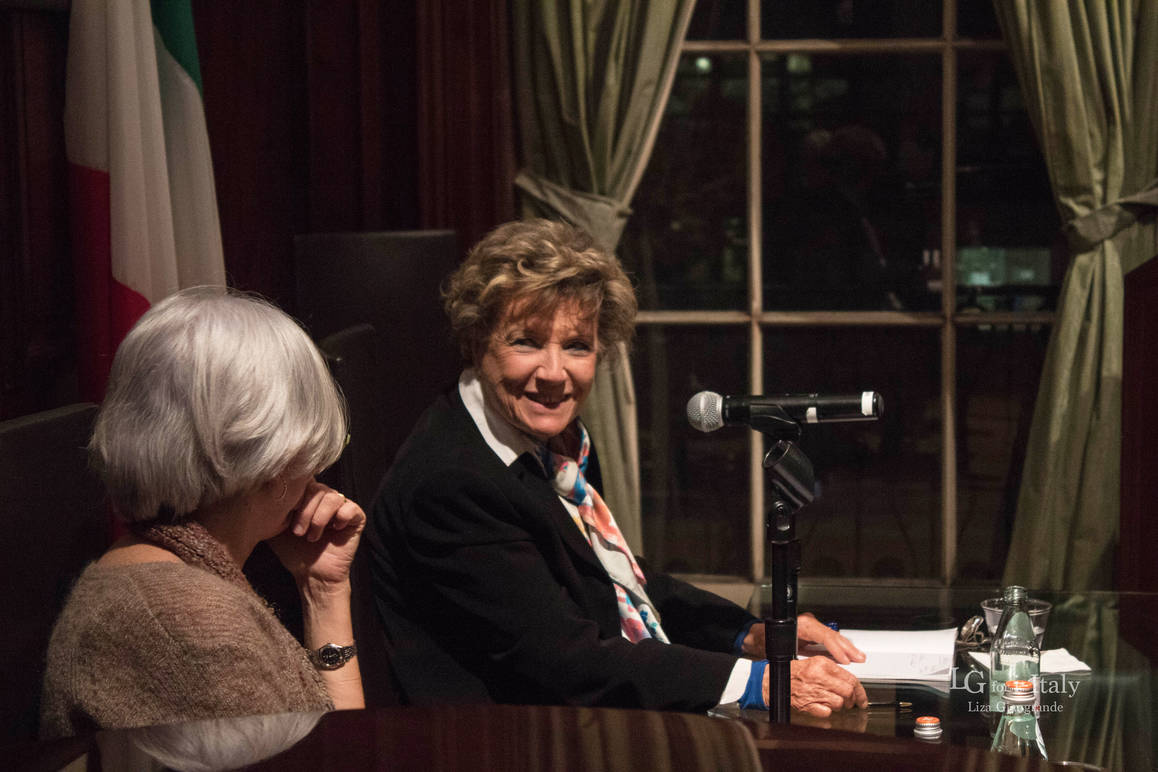
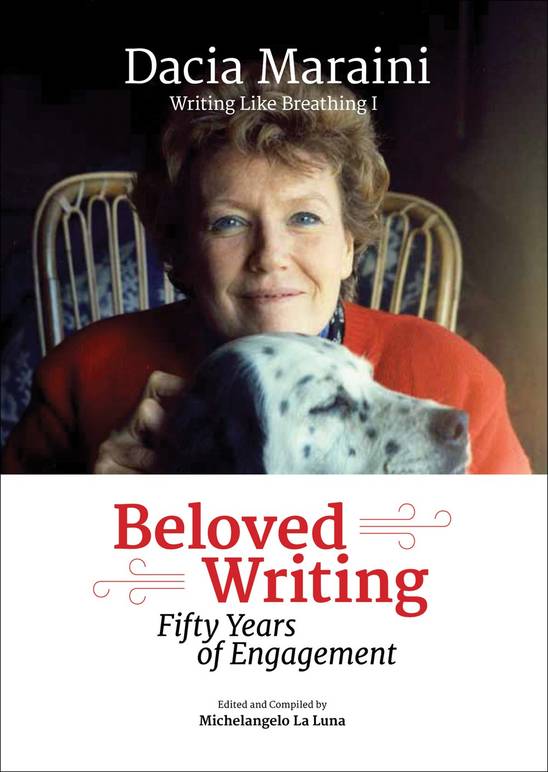
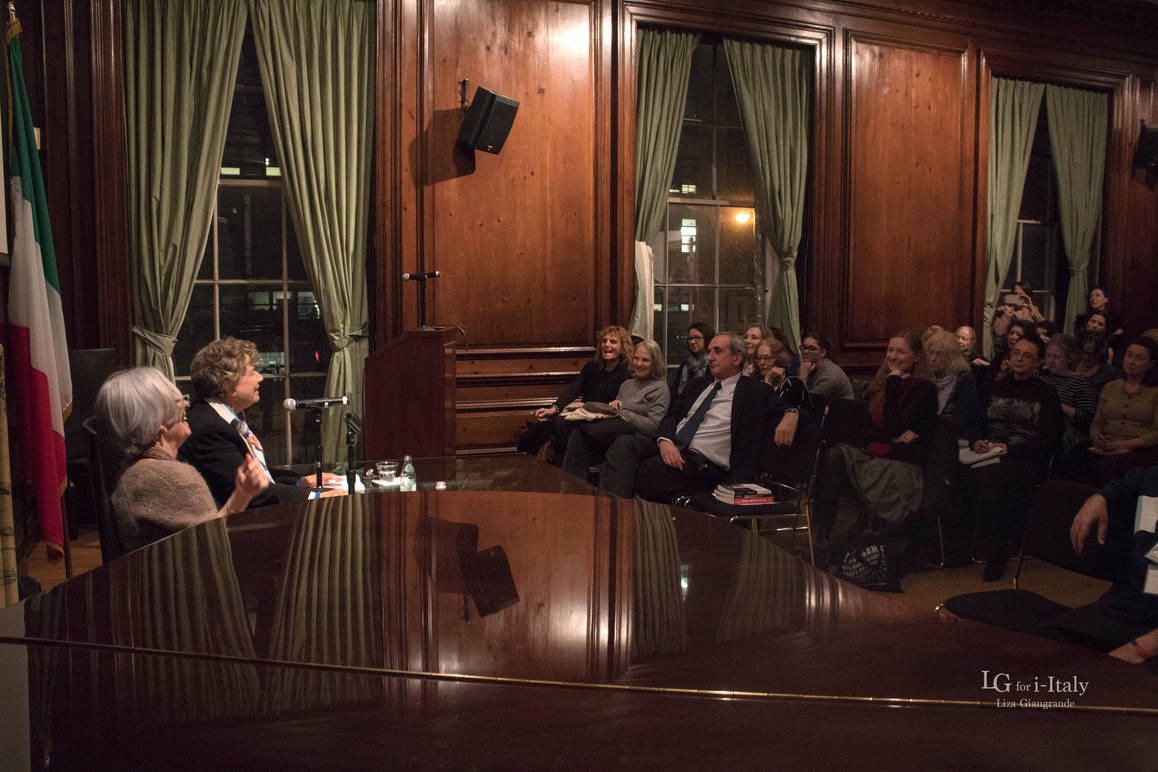
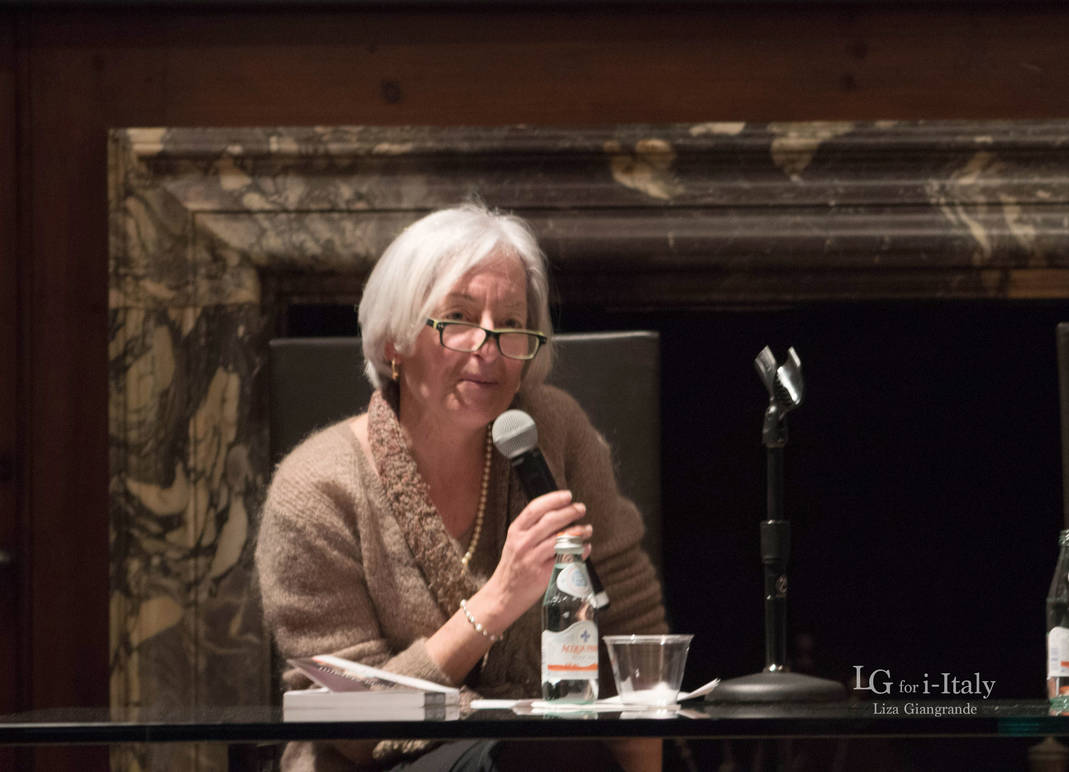
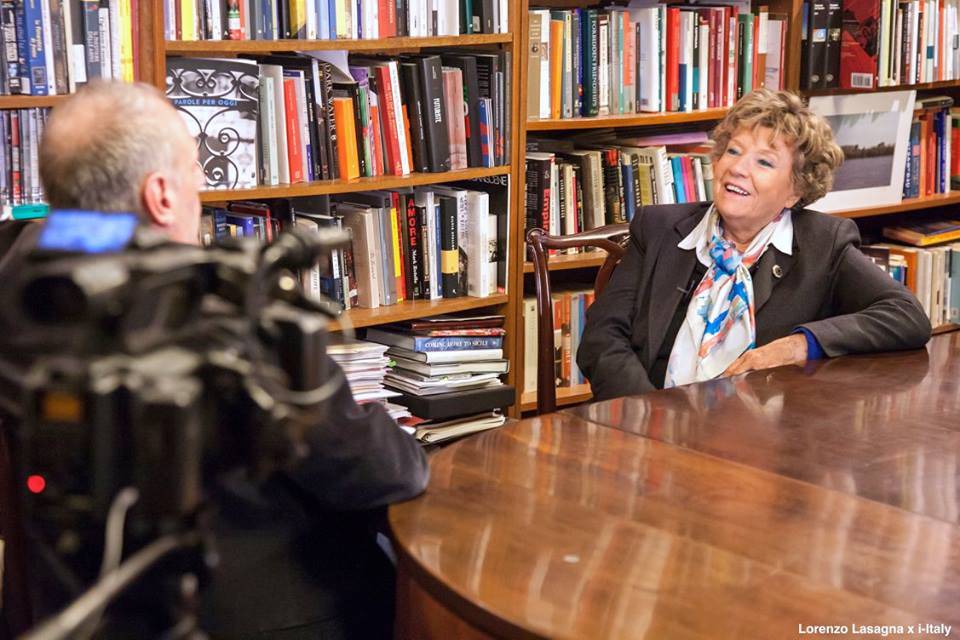




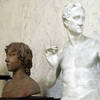

i-Italy
Facebook
Google+
This work may not be reproduced, in whole or in part, without prior written permission.
Questo lavoro non può essere riprodotto, in tutto o in parte, senza permesso scritto.